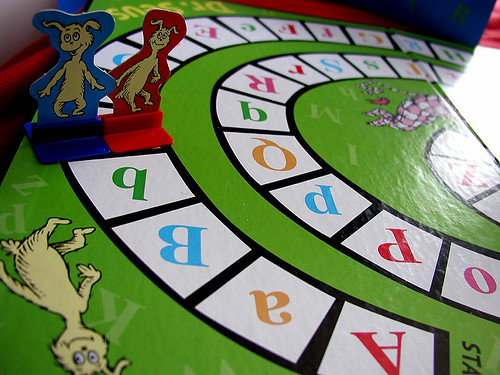I frequently find myself awake at 3:00 in the morning and unable to get back to sleep. However, I never have trouble getting to sleep at 10:30 in the evening. It usually takes about three pages of whatever print-based fiction I have going (Terminal Experiment by Robert J. Sawyer). But last night was an exception, when Brenda mentioned an Associated Press article that she kept running into on Sunday. “What’s the true cost of a Starbucks Latte?” describes a book by Temple University professor, Bryant Simon. ((Matheson, Kathy. “What’s true cost of a Starbucks latte, author asks.” Associated Press 27 Sep 2009: n. pag. Web. 28 Sep 2009. <http://tinyurl.com/ydgwptc>.)) (Wonder if I’d sell more books if they were authored by Warlick David?)
The book, Everything but the Coffee: Learning about America from Starbucks, seems to be saying that you won’t learn about America in a Starbucks, because no body’s talking. WiFi is a particular target for Simon, implying that people go to Starbucks to surf the Net, and if not merely to treat themselves to a multi-syllabic beverage, carry a status symbol, or relax in a buffered safe haven away from home — leaving no room or attention for the civic discourse that use to happen at funding depleted libraries and other public spaces. The article states, “…that Starbucks, a private corporation, has enriched itself in part by taking advantage of Americans’ impoverished civic life.”
I think that’s a little overboard. I told Brenda that there are slow times when many of the people at the Starbucks I write at are sitting alone at tables, tapping at their laptops. But that’s the exception. Most of the time the room is loud with conversation, and, from time to time, I find myself drawn into discussions with others about a variety of issues.
But even though I find myself feeling a bit defensive about Simon’s researched position, I am also sympathetic to his concerns. I’m certain that a case could be made that we are even more engaged in civic conversation today than ever before, because of our increasingly ubiquitous access to a global digital community. But I find it too easy and appealing to connect exclusively to people who agree with my world view. Engaging in conversations within like-minded communities might even lead me to feel so passionately about my positions that I could become less sensitive to the positions of others on the occasions that I find myself in contact with them, behaving with less civility than I should.
The problem is not the Internet, WiFi, or even Starbucks. The problem is us. We simply need to learn and embrace the fact that NOTHING IS SIMPLE.

Powered by ScribeFire.














 It’s one of those ideas that has occurred to me during those moments when a perfect example presents itself, but then loses itself in the stack of other ideas of similar birth and death. But here, at the beginning of the school year (at least in the Northern Hemisphere), it seems like a good time to suggest Blog Worthy Topics. I’m thinking specifically of learner blogs, classrooms where both teacher-learner and student-learner are blogging, and sometimes looking for topics for writing, sharing, and engaging about.
It’s one of those ideas that has occurred to me during those moments when a perfect example presents itself, but then loses itself in the stack of other ideas of similar birth and death. But here, at the beginning of the school year (at least in the Northern Hemisphere), it seems like a good time to suggest Blog Worthy Topics. I’m thinking specifically of learner blogs, classrooms where both teacher-learner and student-learner are blogging, and sometimes looking for topics for writing, sharing, and engaging about.




